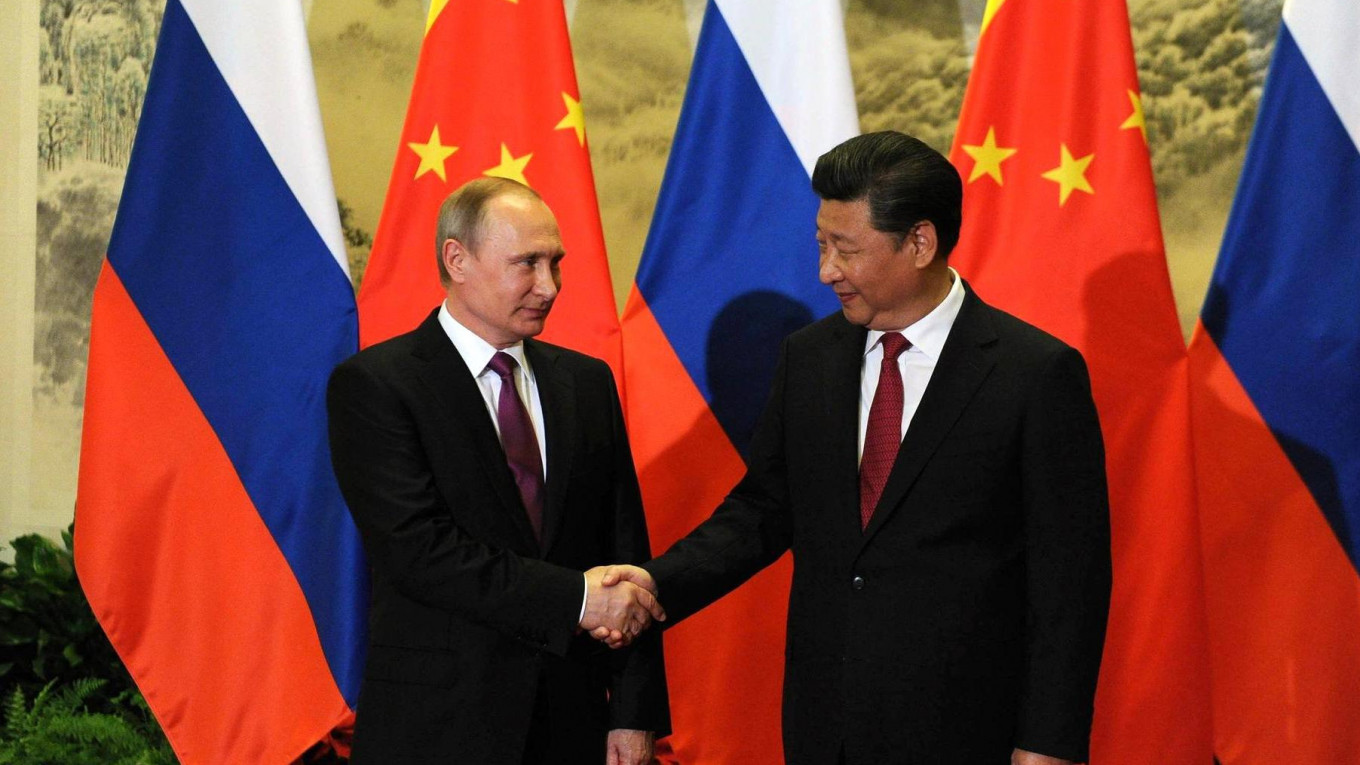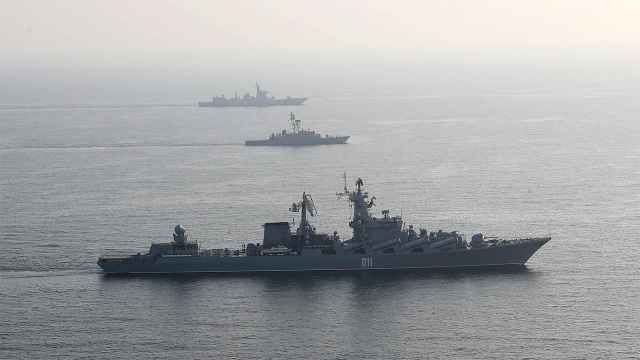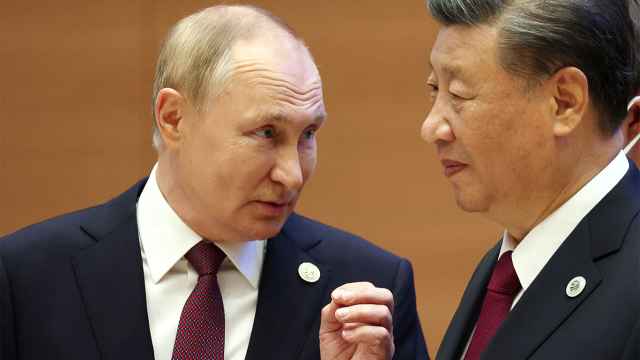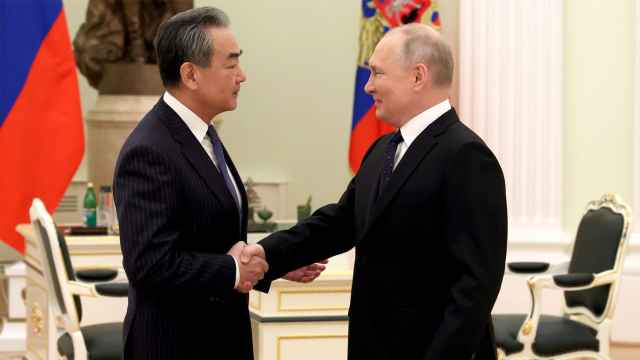Vladimir Putin has recently returned from the "One Belt, One Road" forum in Beijing, and everyone is satisfied.
For China, it was very important that Putin attended. The forum, held over the weekend, was supposed to solidify China’s new role as a motor of economic integration in Eurasia. China has already decided to make the forum a regular event, and Russians involved in organizing the event feel China is essentially attempting to create a parallel G20.
But major powers’ views on this forum are governed by their attitudes toward China’s ambitions. Of Beijing’s three major rivals in Asia, one (India) is boycotting the forum, while two (the United States and Japan) have decreased their participation to a bare minimum. Russia, on the other hand, was the only permanent member of the UN Security Council to send a head of state to the event, thereby demonstrating its broad support for China’s plans.
Traveling to Beijing was also important for Putin. Russia requires special treatment. The country wants to demonstrate its self-sufficient, independent role in Eurasia. Putin even dedicated his speech in Beijing to this theme. What’s more, the Kremlin is preparing for Chinese President Xi Jinping’s visit to Moscow in July, and Russia expects to sign a raft of important agreements.
Of course, all this has very little in common with the official Russian state propaganda about a “pivot to the East” presented in 2014. But Western observers are also wrong to speak of a decline in Russo-Chinese relations.
After the election of President Donald Trump, there were expectations for a change in U.S. policy on China. However, Trump Administration’s Asian strategy quickly collapsed and Trump essentially returned to the “One China” principle. Today, Washington is chaotically continuing Obama’s course — but without a key element, the Transatlantic Partnership.
So, Russian-Chinese relations are developing according to their previous logic: On the whole, Russia supports China on North Korean issues. And China, by and large, supports Russia’s position on Syria, but typically backs off at the most critical moments. (For example, during the storming of Aleppo in 2016 and after the chemical weapons attack on Idlib in 2017, China abstained from voting in the UN Security Council.)
Naturally, Moscow’s official plan to achieve $200 billion worth of trade turnover with China by 2020 is already quite unrealistic. In November 2016, Russian Prime Minister Dmitry Medvedev spoke of the possibility of reaching this mark “in three-five-seven years.”
In reality, however, Russia-China trade turnover is growing, but not that rapidly. There is even hope that, this year, it will approach its pre-economic crisis level from 2013 — $88.8 billion, according to the Russian Customs Service. The reason is not just fluctuating oil prices, but also in growth in the physical volumes of oil: In 2016, Russia became the single largest supplier of oil to China.
On the eve of Putin’s visit to Beijing, Russian officials were saying that in the last two years the country had begun to realize the “17 joint projects with a total investment of $15 billion.” Either way, China is already a notable investor in Russia, although it still cannot compete with the EU in this arena. It also remains nearly impossible to calculate the size of China’s economic presence in Russia — in both countries, the usage of offshore accounts has become too engrained.
Russian officials say that Russian and Chinese firms are gradually gaining experience doing business together. This is leading to an increase in deals worth under $100 million. But it remains unclear whether this is a stable trend. Russian trade is gradually reorienting on Asia and, first and foremost, on China. But all this is happening slowly.
Ties between Russian and Chinese officials, military and business people are growing closer. But all this is happening slowly, and a qualitative shift will take decades.
When Xi Jinping comes to Moscow in July, Russia expects to sign certain “major agreements,” said Yury Ushakov, Putin’s aide. Moscow is likely waiting for progress in preparing an agreement on the Moscow-Kazan high speed railway. But agreements on international transport corridors in the eastern Primorye region may also be signed. Russian officials have not said what specifically Moscow expects from the visit.
Naturally, there has been no breakthrough with China and Russia’s “pivot to the East.” And there is no reason to expect a breakthrough. Nonetheless, at any moment, Moscow and Beijing could announce that their relations are in the “best condition of all time” — and they would be correct.
A Message from The Moscow Times:
Dear readers,
We are facing unprecedented challenges. Russia's Prosecutor General's Office has designated The Moscow Times as an "undesirable" organization, criminalizing our work and putting our staff at risk of prosecution. This follows our earlier unjust labeling as a "foreign agent."
These actions are direct attempts to silence independent journalism in Russia. The authorities claim our work "discredits the decisions of the Russian leadership." We see things differently: we strive to provide accurate, unbiased reporting on Russia.
We, the journalists of The Moscow Times, refuse to be silenced. But to continue our work, we need your help.
Your support, no matter how small, makes a world of difference. If you can, please support us monthly starting from just $2. It's quick to set up, and every contribution makes a significant impact.
By supporting The Moscow Times, you're defending open, independent journalism in the face of repression. Thank you for standing with us.
Remind me later.






